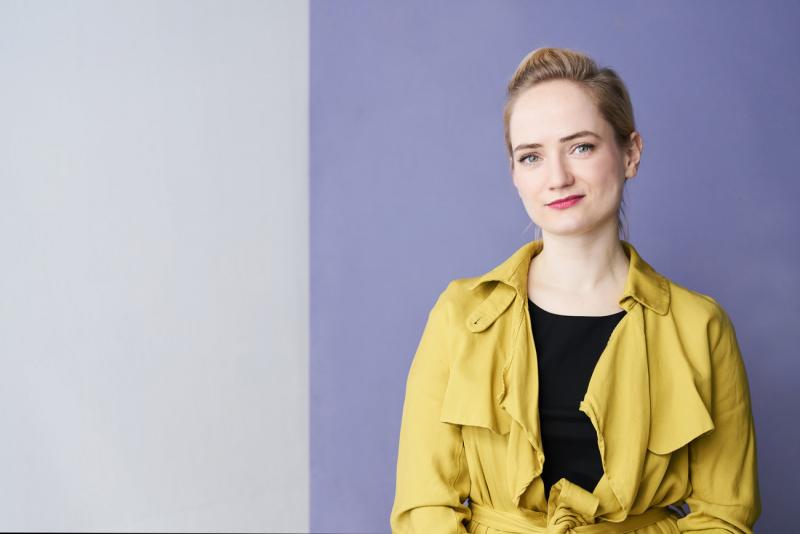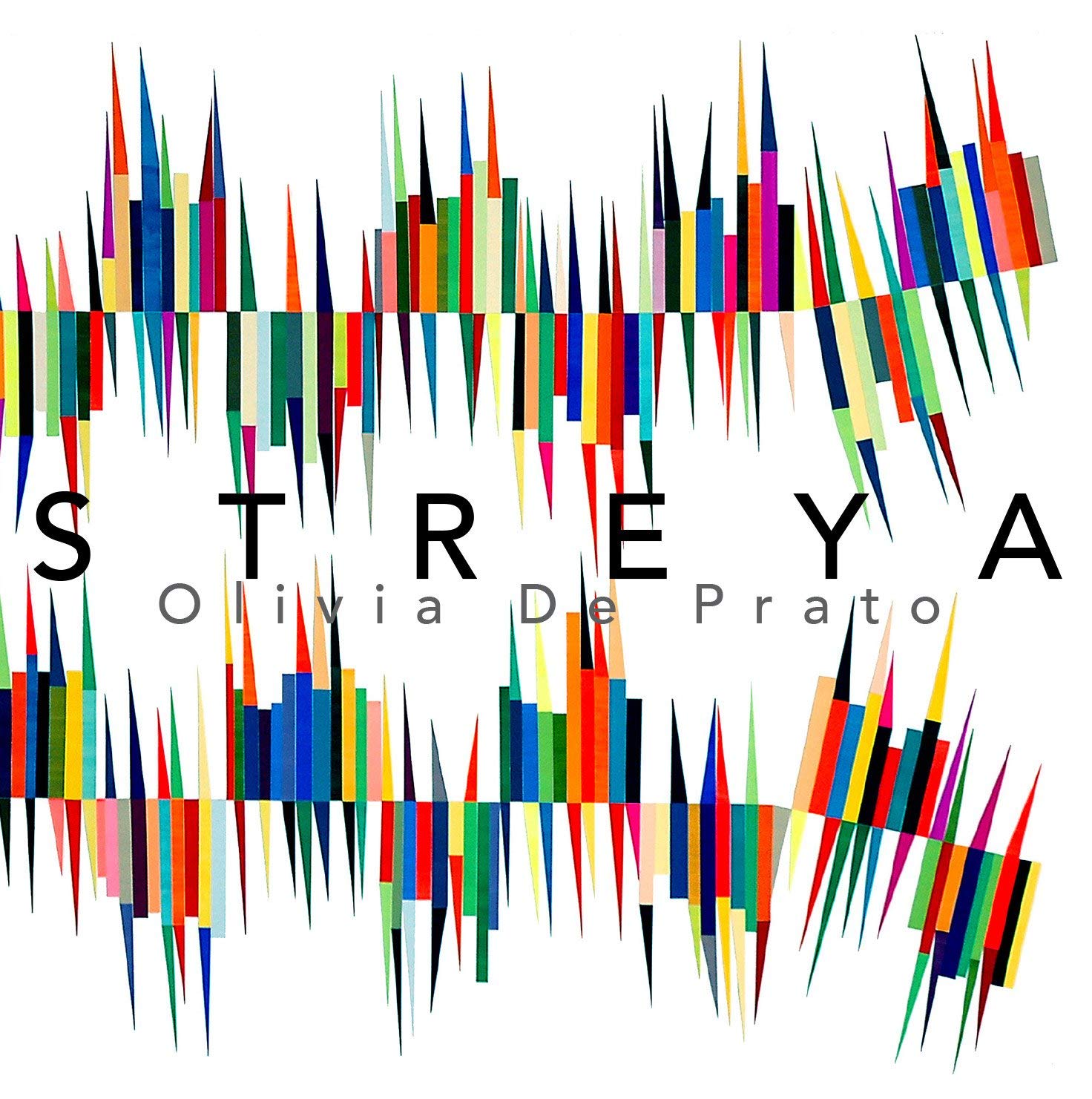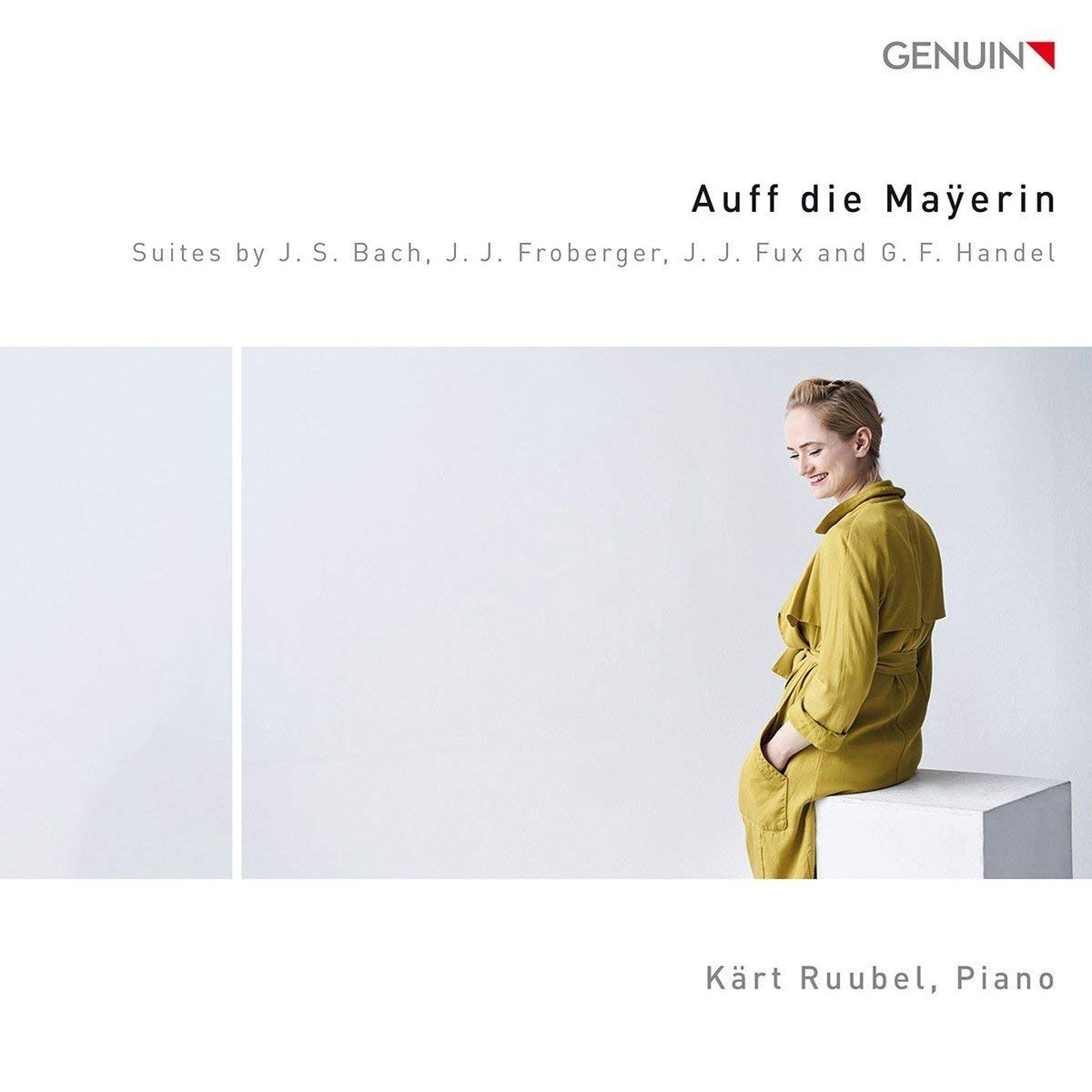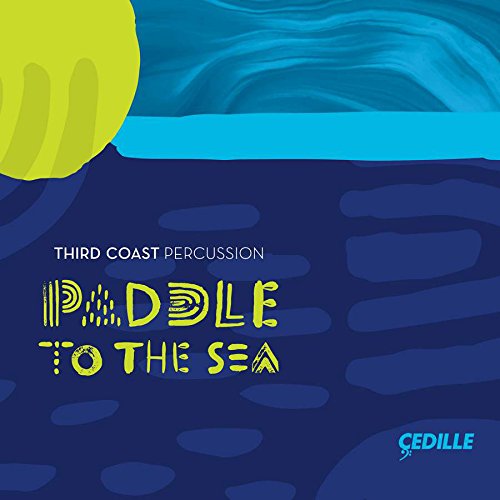Classical CDs Weekly: Olivia De Prato, Kärt Ruubel, Third Coast Percussion | reviews, news & interviews
Classical CDs Weekly: Olivia De Prato, Kärt Ruubel, Third Coast Percussion
Classical CDs Weekly: Olivia De Prato, Kärt Ruubel, Third Coast Percussion
Electro-acoustic violin, aquatic percussion and a disc of baroque keyboard suites

 Streya: New works for solo violin and violin with electronics Olivia De Prato (violin) (New Focus Recordings)
Streya: New works for solo violin and violin with electronics Olivia De Prato (violin) (New Focus Recordings)
Combining acoustic instruments with electronics is a dark art, and tantalisingly few details about the process are revealed in the sleeve notes to violinist Olivia De Prato’s recital disc. Are the electronics taped or generated live? How is De Prato experiencing them? And how are the sounds notated, if at all? We're not told. Three electro-acoustic pieces are included here. Most immediate is Missy Mazzoli’s Vespers for Violin, a deep, warm bath of sound which sets solo violin against a backdrop of sampled keyboards, vocals and wheezy organs. The two elements are convincingly conjoined, a hesitant start swelling to ecstatic heights before a sumptuous fade. Lovely stuff. Intriguing if less euphonious is Samson Young’s Ageha.Tokyo, the pulsating accompaniment presumably evoking the Tokyo nightclub the work is named after. Taylor Brook’s Wane has De Prato shadowed by a quartet of her prerecorded selves, each tuned slightly differently. It's technically impressive, if unsettling.
Victor Lowrie’s Streya is an angular, explosive attempt to portray the birth of a star, and Percorso Insolito by Ned Rothenberg is an engaging depiction of De Prato traversing a hilly landscape. Reiko Füting’s Tanz.Tanz is based on the closing movement of Bach's D minor Partita, a shimmering, elusive delight. De Prato's confidence brings this challenging repertoire to colourful life, and production values are superb.
 Auff die Maÿerin: Suites by Bach, Froberger, Fux and Handel Kärt Ruubel (piano) (Genuin)
Auff die Maÿerin: Suites by Bach, Froberger, Fux and Handel Kärt Ruubel (piano) (Genuin)
This delicious anthology of baroque keyboard music played on a modern Steinway offers a welcome chance to become acquainted with one Johann Jakob Froberger. Born in Stuttgart in 1616, he was pivotal in establishing the keyboard suite as a standard form. Rehabilitating Froberger has been a labour of love for Estonian pianist Kärt Ruubel, whose research revealed that pianists have rarely touched his music. It's hard to understand why: Froberger’s tiny Partita No 6 Auff die Maÿerin is irresistible in Ruubel’s hands, a cheery suite based on a naïve folk song. Then there's his Lamentation in F minor, written to mark the passing of Froberger's Viennese employer Ferdinand III, full of quirky harmonies and a sense of deep melancholy. Ruubel makes this troubled work glow, and the unexpected F major close (a depiction of Ferdinand ascending to heaven?) is delicious. More Froberger please, and from this pianist.
Johan Joseph Fux’s Suite No 3 is another miniature marvel, its technical demands (listen to that bourée) effortlessly surmounted, and there's more familiar fare in the shape of music by Bach and Handel. The latter's Suite No 6 in D minor gets a frisky, rhythmically sharp reading and Bach’s French Suite No 2 is exquisitely done, the “Sarabande” poised and elegant. A lovely disc, and beautifully recorded to boot.
 Third Coast Percussion: Paddle to the Sea (Cedille)
Third Coast Percussion: Paddle to the Sea (Cedille)
Musical material which might in some circumstances seem naïve or simplistic rarely does so when scored for percussion. Take a work like Reich’s Music for Pieces of Wood - who'd have imagined that the thwacking of different sized sticks could sound so cool? Chicago’s Third Coast Percussion have already recorded an impressive Reich CD, but this new one is based around something different. Paddle to the Sea is a suite composed collaboratively by the group's players, designed to accompany showings of a 1966 film adaptation of an iconic children's book about a toy canoe travelling from the Great Lakes to the Atlantic Ocean. It's a substantial, 33 minute work, a parade of enchanting watery vignettes. The pace ebbs and flows to match the watercourses traversed by the canoe, the mood veering between serenity and agitation. It's enchanting, though would have been better still had there been a way to include the film as part of the package. I'll search for it on YouTube.
Third Coast Percussion admit that their score allowed them “to pay homage to some artists that we admire”, and works by said influences are included as couplings. Philip Glass’s 12 Pieces for Ballet were arranged by a Brazilian ensemble and became Aguas da Amazonia. Four of them were adapted further by Third Coast, each named after the Amazon and three of its tributaries. Whereas Glass’s extended works often outstay their welcome, these four little pieces delight. Interspersed with the Glass are the six movements of Jacob Druckman’s epic solo marimba opus, Reflections on the Nature of Water, the playing duties shared between the group. Plus a transcription of a Zimbabwean melody, the original’s thumb piano textures now heard on marimba, shakers and vocals. This is an enormously enjoyable album – attractively designed and well-annotated. Cedille’s engineering is rich and vivid – this is the best percussion disc I've heard in ages.
Explore topics
Share this article
The future of Arts Journalism
You can stop theartsdesk.com closing!
We urgently need financing to survive. Our fundraising drive has thus far raised £49,000 but we need to reach £100,000 or we will be forced to close. Please contribute here: https://gofund.me/c3f6033d
And if you can forward this information to anyone who might assist, we’d be grateful.

Subscribe to theartsdesk.com
Thank you for continuing to read our work on theartsdesk.com. For unlimited access to every article in its entirety, including our archive of more than 15,000 pieces, we're asking for £5 per month or £40 per year. We feel it's a very good deal, and hope you do too.
To take a subscription now simply click here.
And if you're looking for that extra gift for a friend or family member, why not treat them to a theartsdesk.com gift subscription?
more Classical music
 Solomon, OAE, Butt, QEH review - daft Biblical whitewashing with great choruses
Even a top soprano and mezzo can’t make this Handel paean wholly convincing
Solomon, OAE, Butt, QEH review - daft Biblical whitewashing with great choruses
Even a top soprano and mezzo can’t make this Handel paean wholly convincing
 Two-Piano Gala, Kings Place review - shining constellations
London Piano Festival curators and illustrious friends entertain and enlighten
Two-Piano Gala, Kings Place review - shining constellations
London Piano Festival curators and illustrious friends entertain and enlighten
 Echo Vocal Ensemble, Latto, Union Chapel review - eclectic choral programme garlanded with dance
Beautiful singing at the heart of an imaginative and stylistically varied concert
Echo Vocal Ensemble, Latto, Union Chapel review - eclectic choral programme garlanded with dance
Beautiful singing at the heart of an imaginative and stylistically varied concert
 Scott, Irish Baroque Orchestra, Whelan, RIAM, Dublin review - towards a Mozart masterpiece
Characteristic joy and enlightenment from this team, but a valveless horn brings problems
Scott, Irish Baroque Orchestra, Whelan, RIAM, Dublin review - towards a Mozart masterpiece
Characteristic joy and enlightenment from this team, but a valveless horn brings problems
 Classical CDs: Voice flutes, flugelhorns and froth
Baroque sonatas, English orchestral music and an emotionally-charged vocal recital
Classical CDs: Voice flutes, flugelhorns and froth
Baroque sonatas, English orchestral music and an emotionally-charged vocal recital
 Kanneh-Mason, Britten Sinfonia, Shave, Milton Court - a grin and a big beaming smile
A pair of striking contemporary pieces alongside two old favourites
Kanneh-Mason, Britten Sinfonia, Shave, Milton Court - a grin and a big beaming smile
A pair of striking contemporary pieces alongside two old favourites
 theartsdesk at the New Ross Piano Festival - Finghin Collins’ musical rainbow
From revelatory Bach played with astounding maturity by a 22 year old to four-hand jazz
theartsdesk at the New Ross Piano Festival - Finghin Collins’ musical rainbow
From revelatory Bach played with astounding maturity by a 22 year old to four-hand jazz
 First Person: Manchester Camerata's Head of Artistic Planning Clara Marshall Cawley on questioning the status quo
Five days of free events with all sorts of audiences around Manchester starts tomorrow
First Person: Manchester Camerata's Head of Artistic Planning Clara Marshall Cawley on questioning the status quo
Five days of free events with all sorts of audiences around Manchester starts tomorrow
 Goldscheider, Brother Tree Sound, Kings Place review - music of hope from a young composer
Unusual combination of horn, strings and electronics makes for some intriguing listening
Goldscheider, Brother Tree Sound, Kings Place review - music of hope from a young composer
Unusual combination of horn, strings and electronics makes for some intriguing listening
 theartsdesk Q&A: composer Donghoon Shin on his new concerto for pianist Seong-Jin Cho
Classical music makes its debut at London's K-Music Festival
theartsdesk Q&A: composer Donghoon Shin on his new concerto for pianist Seong-Jin Cho
Classical music makes its debut at London's K-Music Festival

Add comment